Posts by Breakstone, White & Gluck
More than 33,000 Child Car Seats Recalled
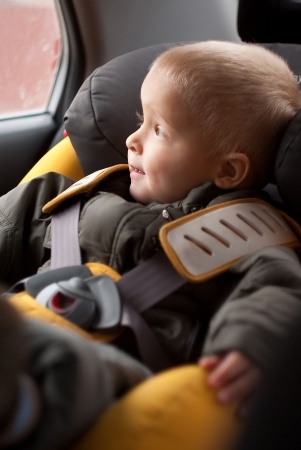 Combi USA announced a recall of over 33,000 car seats last week and said parents should expect repair kits starting in February.
Combi USA announced a recall of over 33,000 car seats last week and said parents should expect repair kits starting in February.
Combi USA recalled its Coccorro, Zeus, Turn and Zeus 360 models made through January 2013. The National Highway Traffic Safety Administration (NHTSA) reports the seat straps do not meet minimum requirements. Children may not be properly secured in case of a car accident.
The Charlotte, N.C. company said one part of the harness failed strength tests, but the harness as a whole meets safety standards. Seats made after January 2013 do not have this defect.
Combi USA will notify owners who have registered their products and mail out free harness replacement kits starting in February.
What to Know About Child Safety Seats
Choosing a safe car seat and learning how to properly install it is a struggle for many parents. There are a number of resources to help make the process easier.
Product Recalls.The Consumer Product Safety Commission (CPSC) website provides updates on product recalls. This recall was reported in the media and not listed on the website, but most recalls can be found there.
NHTSA. The National Highway Traffic Safety Administration provides online resources about child seat safety ratings.
State of Massachusetts. In Massachusetts, children must use some type of child passenger safety seat until they are 8 years old or weigh 57 pounds. All seats must meet federal standards. Read what types are appropriate for each age.
Local Police Departments and Organizations. Your local police may have an officer who has been specially trained to fit car seats. This is a free service.
Related:
Combi USA Recalls More than 33,000 Child Seats, ABC News.
Read More
After a Child’s Death, Nearly 3 Million IKEA Children’s Lamps are Recalled in U.S.
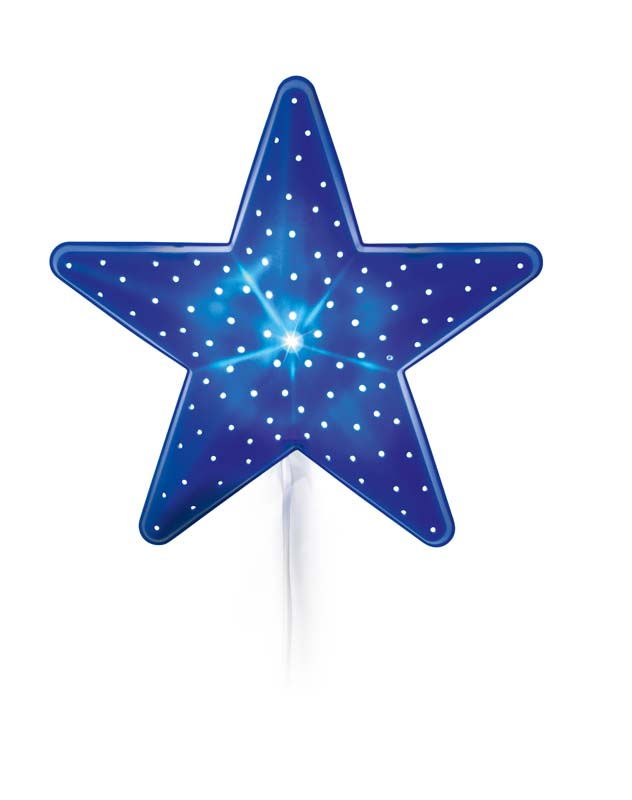 Parents who shop at IKEA should be aware of a far-reaching product recall involving a children’s lamp which has been blamed for a 16-month-old’s death.
Parents who shop at IKEA should be aware of a far-reaching product recall involving a children’s lamp which has been blamed for a 16-month-old’s death.
On Dec. 11, the Consumer Product Safety Commission (CPSC) announced the recall of IKEA children’s wall mounted lamps sold from July 1999 through May 2013. A total of 23 million of the SMILA-series wall mounted lamps were sold around the world. Of these, 2.9 million were sold in the United States and 1.1 million in Canada.
The recall follows two tragic incidents in Europe. In one case, a 16-month-old child in a crib died after becoming entangled in the lamp’s cord. In another incident, a 15-month-old became entangled in the cord and was nearly strangled.
Consumers are instructed to stop using the recalled lamp and contact IKEA for a free repair kit.
The lamps were recalled by IKEA North America, of Conshohocken, Pennsylvania. IKEA is a Swedish company which sells home furniture. The company has 340 IKEA stores in 42 countries. The company has 38 stores in the United States, including one on Route 24 in Stoughton, which opened in 2005. This is the only Massachusetts IKEA store.
The defective wall lamps were sold in eight designs through IKEA’s stores, catalog and ikea-usa.com for between $10 and $13.
What Consumers Should Know
Here is the IKEA lamp recall notice. The lamp was sold in eight designs, including a blue star, yellow moon, pink flower, white flower, red heart, green bug, blue seashells and an orange horse. The lamps are about 11 inches by 11 inches and have a seven-foot long electrical cord. Model numbers are included in the recall notice.
Parents who contact IKEA for a repair kit will be given self-adhesive fasteners to attach the lamp’s cord to the walls along with safety instructions.
Recalls Related to Children
Each year, the CPSC announces recalls dozens of dangerous toys. For 2012, the agency estimates that toy-related injuries resulted in 192,000 visits to U.S. hospital emergency rooms.
The dangers poorly made toys can pose is well known and always in the spotlight around the holiday shopping season. But the public often overlooks the dangers in other children’s products, which are often used even more frequently than toys. In 2013, a number of defective children’s products were recalled, including bunk beds which posed an entrapment risk, children’s utensils, children’s hooded sweatshirts with drawstrings, pajamas and baby strollers. See the link below to learn more.
Related
Summary of 2013 product recalls, Safe Kids Worldwide
IKEA Recalls Children’s Wall-Mounted Lamps Due to Strangulation Hazard; One Child Death Reported, Consumer Product Safety Commission.
Read More
December Product Recalls Include Holiday Decoration, Baby Carrier
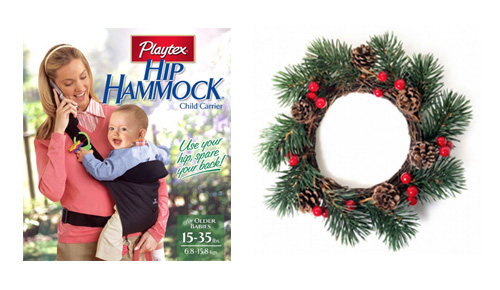 The Consumer Product Safety Commission (CPSC) announced several recalls last week, including a popular holiday decoration and two children’s products. The commission also announced its annual list of winter-related products which were recalled during other seasons.
The Consumer Product Safety Commission (CPSC) announced several recalls last week, including a popular holiday decoration and two children’s products. The commission also announced its annual list of winter-related products which were recalled during other seasons.
Yankee Candle Ring
The Yankee Candle Company recalled about 15,000 pine berry candle rings in the U.S. and 2,000 in Canada. They pose a fire risk because of the synthetic foliage, berries and cones ornamentation. No injuries have been reported. The recalled rings were sold in Yankee Candle and Hallmark stores nationwide from September 2013 through October 2013. They were sold for between $8 and $10 at these stores, as well as through Yankee Candle catalogs and Yankeecandle.com. Consumers are asked to return candles to the nearest Yankee Candle store for a full refund. See the CPSC recall notice.
Playtex Hip Hammock Infant Carriers
Playtex is offering parents a full refund after recalling a baby hammock-style carrier. Playtex Hip Hammock infant carriers were recalled because they pose a fall hazard to children. About 305,000 baby carriers were recalled in the U.S. and 36,000 in Canada.
The company received 87 reports of the product’s buckles cracking or breaking. Two reports involved injuries, including one infant who required care at a hospital emergency room.
Consumers are instructed to stop using the carrier and contact Playtex for a full refund. These carriers were sold from June 2004 to December 2008 in the U.S. and through January 2010 in Canada. Purchase price was about $40 for the basic model and about $60 for the deluxe model.
In the U.S., the baby carrier was sold at Burlington Coat Factory, Target, Amazon.com and other baby and discount stores.
The carriers are designed for children 15 to 35 pounds and are made of a suede fabric in black and navy. They have black, black and white check and burgundy lining on the inside. Read the CPSC recall notice for model numbers.
Cubetensils Children’s Eating Utensils
Edoche Inc. recalled about 1,100 children’s spoon and fork sets because the handle can detach, posing a choking hazard for infants. The Seattle, Wash. company received one report of a handle detaching and a baby putting it in their mouth. No injuries were reported.
The utensils were sold in seven different designs and patterns from May 2012 through November 2013 for about $8 per set. They were sold at retailers and specialty stores nationwide, along with Amazon.com and ebay.com. Consumers can contact Edoche for a full refund. Read the CPSC recall notice for more information.
Consumer Product Safety Commission Website
If you have never used this website, it is a great tool to become familiar with in the New Year. You can find the latest product recalls and more information about ones you learn about in the news. But often, product recalls are not picked up by the news media so it is important to seek out the information yourself periodically. If you use Facebook, you can also stay up-to-date by following our page, where we often report on recalls.
Boston Massachusetts Personal Injury and Medical Malpractice Lawyers | Promote Your Page Too

Here is one page from the CPSC website which may help you now: “Check for These Winter Products Recalled Last Summer.”
Read More
Drivers Age 25-39 Admit to Most Texting While Driving
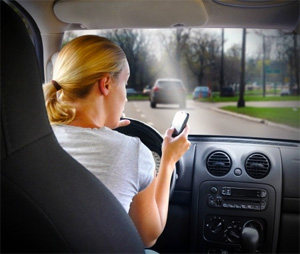 One in four drivers admitted to texting while driving in the past month, a new AAA survey reports. While teenagers often get the most blame, this survey found drivers age 25-39 are actually the worst offenders.
One in four drivers admitted to texting while driving in the past month, a new AAA survey reports. While teenagers often get the most blame, this survey found drivers age 25-39 are actually the worst offenders.
Texting while driving is against the law in Massachusetts and 40 other states. But in the new survey, 26 percent of drivers reported sending a text or e-mail while driving in the past month. Among drivers age 25-39, 45 percent admitted to texting or sending an e-mail while driving and 10 percent admitted they did so fairly often.
These drivers were also most likely to drive while talking on a handheld cell phone, with 82 percent admitting to doing so in the past month and 43 percent saying they did it fairly often. Talking on a cell phone while driving is still legal in many states, including Massachusetts, but legislation is pending to restrict that activity.
Drivers 19-24 were second most likely to text while driving, with 42 percent confessing to it at least once in the previous month and 11 percent saying they did it fairly often.
Drivers age 16-18 were third most likely, followed by drivers ages 40-59, then 60 and older. Drivers age 75 and older were the least likely, but even one percent of them admitted to texting and 31 percent admitted to talking on a handheld cell phone while driving in the previous month.
A few notes:
- One out of 10 fatal car crashes involves distraction, resulting in more than 3,000 deaths per year in the U.S.
- At any given daylight moment, approximately 660,000 drivers in the U.S. are using cell phones or manipulating electronic devices while driving, according to the National Highway Traffic Safety Administration (NHTSA).
- Using a cell phone while driving quadruples your chance for being involved in a car accident, according to AAA.
- Talking on a handheld cell phone is banned in 12 states and the District of Columbia. It is legal in Massachusetts and the rest of New England. Cell phone use is restricted for novice drivers in 37 states and the District of Columbia.
- Texting while driving is banned for drivers in 41 states and the District of Columbia, including Massachusetts. It is also banned in other New England states. Six other states have bans prohibiting novice drivers from texting.
- Using hands-free devices or infotainment systems is not safer than using handheld cell phones or texting, according to a study by a University of Utah research team. The study last summer tested voice-to-text technology which allows drivers to talk on the phones, send texts and e-mails and use social media without touching a cell phone. The study measured driver alertness using cameras mounted inside the vehicle and diagnostic tools to measure reaction time and brain activity.
- Researchers ranked voice-to-talk technology as more dangerous than using a handheld cell phone and listening to a radio.
Related:
Map of handheld cell phone bans, Insurance Institute for Highway Safety
Hands-free talking, texting is unsafe, University of Utah
Teens report texting or using phone while driving significantly less often than adults, AAA Read More
Massachusetts Property Owners Have a Legal Responsibility to Clear Snow and Ice
If you are a property owner, today is a good time to inspect your driveway and walkways. Even if you worked hard to clear all the snow yesterday, go out and take a second look. The deep freeze is setting in and more snow is forecast for tomorrow, creating the potential for slip and fall accidents.
Why is this important? In addition to making it easier for your family to come and go from your home, you have a duty to use reasonable care to clear snow and ice under Massachusetts law. If you neglect this, you could be liable for any injuries that result.
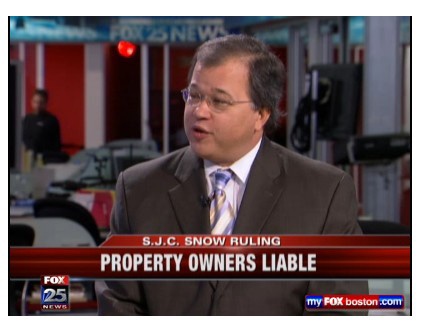
Massachusetts Law on Snow and Ice Removal The law for clearing your property is more strict than in past years. It changed in 2010, with the Massachusetts Supreme Judicial Court’s decision in Papadopoulos v. Target Corporation, SJC-10529 (July 26, 2010). View TV interviews from 2010/2011 in which attorney David White explains the law.
Prior to then, property owners were liable for injuries sustained on what was known as “unnatural accumulations” of snow or ice. Examples of this are gutters leaking onto sidewalks or snow piled on sidewalks.
The state’s high court changed the longstanding law so it falls in line with other states. Massachusetts property owners now have a responsibility to keep their premises in a reasonably safe condition and clear all snow and ice, whether it is a natural accumulation by Mother Nature or pushed there by a plow.
This law applies to homeowners as well as commercial property owners.
A few points to remember when it snows:
- You have a responsibility to clear your driveway, sidewalks and other areas accessible to the public.
- If you are using a snow blower, remember a shovel for narrow and hard-to-reach areas.
- Do you have the physical ability and time to clear your snow this year? If not, consider contacting a snow removal company.
- Cities have responsibility for clearing sidewalks, but some have ordinances requiring residents to clear their own. These include Boston, Worcester and Newton.
Safety
We all have to balance our legal responsibility to clear the snow with safety. It is hard work and tempting to take shortcuts at times. Remember a few basic safety rules. Do not start your snow blower in your garage or other covered areas. Before you shovel your driveway, clear your home’s heating vents so carbon monoxide does not build up in your home. Then, make sure you dress in layers and take breaks as needed.
Related:
Snow removal law may face test, Boston Globe, Dec. 25, 2010.
Read More
Watch Out for This Recalled Children’s Toy
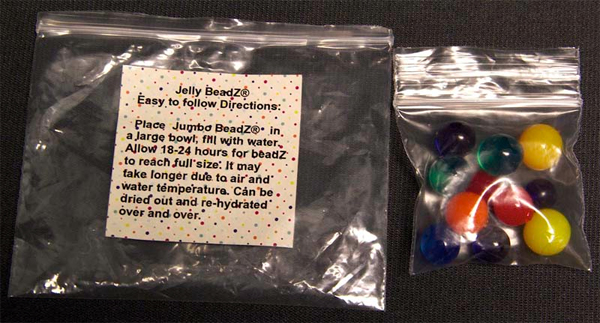
The Consumer Product Safety Commission (CPSC) announced several product recalls last week, including one for a dangerous child’s toy which can cause choking and which has been involved in a death. Also recalled were a high-end bicycle with defective brakes and a flat screen television which can overheat and catch on fire.
Doodlebutt Recalls Jelly BeadZ Jumbo BeadZ and Magic Growing Fruity Fun Toys Due to Serious Ingestion Hazard
About 1,500 of these small water-absorbing toys have been recalled by the importer, Doodlebutt of Lehigh Acres, Florida. The Jumbo BeadZ toys are marble-sized water absorbing balls and the Magic Growing Fruity Fun toys are water-absorbing polymer shapes, such as apples, bananas, butterflies and cherries.
The CPSC is aware of one incident in which an 8-month-old girl ingested the ball and it had to be surgically removed and two cases outside the United States, including one resulting in death.
The CPSC warns children can mistake the toys for candy and when swallowed, they can expand inside a child’s body. The toys can absorb 300 to 500 times their weight and grow up to eight times their original size. Children can suffer vomiting, dehydration and life-threatening injuries. Another problem is similar toys have not shown up on x-rays.
The toys were sold through Amazon.com from February 2012 to September 2013 for about $9. Consumers are advised to take the products away from children immediately and stop using the product. They can contact Doodblebutt for a full refund. Read the CPSC recall notice.
Eight Retailers Recall 32″ Coby Flat Screen Televisions Due to Fire and Burn Hazards
Eight retailers have recalled the 32″ Coby Flat Screen Television due to fire and burn hazards. These retailers have initiated the recall because Coby USA, the product importer and distributor, has gone out of business.
The CPSC has received reports of six incidents involving televisions overheating, smoking or catching on fire. No injuries were reported, but there was some property damage. In two cases, televisions caught on fire and one also scorched a wall.
Consumers are told to turn off and unplug the televisions and contact their retailer. Retailers may offer different remedies, which may include a refund, store credit, gift card or replacement TV. About 8,900 of the televisions were sold through:
Sears/Kmart
Toys R Us
ABC Warehouse
Fry’s Electronics
h.h. Gregg
Nebraska Furniture Mart
P.C. Richard & Son.
Online retailers
BestBuy.com dealtree.com
techliquidators.com
bestbuy.dtdeals.com
The televisions were sold nationwide from August 2011 through November 2013 for between $170 and $260.
Read the CPSC recall notice for the model numbers involved in this recall.
Trek Recalls Madone Bicycles Due to Crash Hazard; Front Brake Can Fail
Trek has recalled several models of its year 2013 Madone bicycles after five reports of loose front brake attachment bolts. No injuries have been reported, but consumers are advised to stop using the bicycle and take it to a Trek dealer for a free replacement front brake system. The bicycles were sold nationwide from July 2012 through this month for between $3,400 and $6,300 and for custom models, up to $15,000. About 6,300 bicycles are involved in this recall. Read the CPSC recall notice.
Other Recalls:
Shaws Industries Recalls Carpet Due to Fire Hazard; Sold Exclusively at Lowe’s Stores
Hobby Lobby Stores Recalls Accent Chairs Due to Risk Injury
Read More
Donate Old Bicycles to Boston Bikes’ Roll It Forward Program
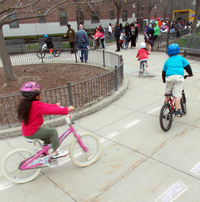
If you have old bicycles you no longer need, consider donating them to a worthy cause this holiday season.
You can donate your old bikes to Boston Bikes and the Roll It Forward program. Boston Bikes manages the city of Boston’s cycling programs, such as the popular Hubway bike share.
Roll It Forward is one of its projects, which repairs and distributes bikes to low-income Boston residents and children who may not otherwise have access to a bike. To date, the program has distributed over 2,400 bicycles.
In 2013, we had the pleasure of contributing to Boston Bikes and Roll It Forward. We donated bike helmets for their youth bike giveaways. We also attended some of the events to help fit helmets, and we got to see first-hand how much the children love seeing those bikes!
We encourage you to consider this organization if you have a bike you are not using. Donating is easy. You can choose among several locations in Greater Boston. Landry Bicycles is collecting bikes at its Boston, Natick, Norwood and Westwood stores in December.
In addition, on Wednesday, Dec. 18, from 6:30 – 8:00 p.m., Landry’s Bicycles in Natick is hosting a meet and greet reception for bike donors. It will celebrate local bicycle-recycling efforts in the area by Boston Bikes’ Roll It Forward, the Worcester Earn-A-Bike and Bikes Not Bombs, another group that, among other things, does great work teaching Boston children how to ride and repair bicycles (and another fine organization that we support!).
Read More
Use Space Heaters and Home Heating Equipment Safely
Home heating equipment is the second leading cause of home fires in Massachusetts. Because half of all home heating fires occur in December, January and February, now is the time to consider if you are heating your home safely.
The most important step is to make sure your smoke alarm has working batteries. Also, have your home heating equipment checked and serviced by a qualified professional each year. They can identify problems and clear any debris in your chimney or vents. Any obstruction increases the chance of fire and can lead to carbon monoxide poisoning, which can be fatal. Other ways to protect your family and home:
Space Heaters
Space heaters cause 33 percent of all home heating fires and 81 percent of home heating fire deaths, according to National Fire Protection Association (NFPA). If you have an older model, consider purchasing a new one with an automatic shut-off feature. Also, search for your model on the Internet to make sure it has not been recalled. The best resource is the Consumer Product Safety Commission website.
Use space heaters on even surfaces and always keep them three feet away from combustibles, such as bed spreads and clothing. Also keep children and pets at least this far away.
Do not use an extension cord and use space heaters on a flat surface where they will not tip over. Remember to turn it off before you go to sleep or if you leave the room.
No Overloaded Electrical Outlets
Be careful not to overload electrical outlets. Space heaters draw a large amount of electricity. Shift around appliances if you think you may be overloading an outlet.
Keep Vents Clear
Monitor your indoor and outdoor heating vents throughout the winter. When it snows, clear your outside heating vents even before you shovel your driveway.
Wood, Coal and Pellet Stoves
In Massachusetts, you need a building permit to install wood, pellet or coal burning stoves and fireplaces. They must be inspected by a local building inspector prior to use.
Last year, there were over 800 fire incidents in Massachusetts involving chimneys, fireplaces and woodstoves. Many result from a build-up of creosote, a by-product of burning wood.
Read the manufacturer’s instructions on how to use your heating equipment. Do not use flammable liquids to start a fire. For fireplaces, check that the damper is open before starting a fire so there is not a build-up of smoke and carbon monoxide.
Use the fireplace screen to prevent flames and sparks from moving outside the fireplace and causing burns and injuries. Do not close the damper until the fire is fully out.
When finished, dispose of ashes in a metal ash can and keep it outside your home and garage. Also keep it away from porches and decks.
Cooking
Make sure you have proper ventilation before you start cooking. Do not use grills inside your home.
Related:
Heating fire safety: Wood Stoves, Space Heaters and Fireplaces, U.S. Fire Administration.
Read More
Are You Ready for Winter Driving?
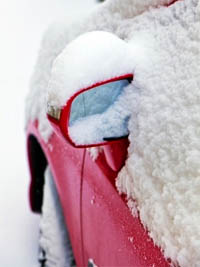 Winter is almost here! We have already seen the first snow flurries in Massachusetts, and it is time for drivers to get prepared for winter driving.
Winter is almost here! We have already seen the first snow flurries in Massachusetts, and it is time for drivers to get prepared for winter driving.
Each year, over 1,300 people are killed and more than 116,800 people are injured in car crashes on snowy, slushy or icy pavement, according to the U.S. Department of Transportation. During snowfall, nearly 900 people are killed in accidents and 76,000 are injured.
Stay safe on the roads this winter. Our Boston car accident lawyers share these tips:
Slow Down! Reduce your speed. When it snows, if you are traveling the speed limit, you are probably traveling too fast for road conditions and are at risk for causing a car accident.
Leave Extra Distance. It takes longer to stop on snowy and icy roads. Increase your following speed to 10 seconds.
Clear Snow and Ice. Make sure your car and windows, including your headlights and turn signals, are free from all snow and ice when you drive.
Gas. Keep your gas tank at least half-full throughout the winter.You will be prepared in case of a serious storm, and you can make sure your gas lines do not freeze up.
Check Your Tires. Inspect your tire tread to make sure your tires are ready for winter. Also, check your tire pressure once a month in the winter.
Exhaust. Keep your exhaust pipe clear of snow.
Practice After the First Snow Storm. On the first icy, snowy day, find a big parking lot that is empty and practicing your skills for handling skids.Teach the new drivers in your home to control a skid the first chance you get.
Highways. If the roads are still being cleared, travel in the lane which has most recently been plowed and avoid changing lanes.
No Cruise Control. Do not use cruise control on slippery roads.
Pedestrians. Remember you may not be able to see pedestrians around snow banks. Reduce your speed and take an extra minute to check for them at intersections.
Check Your Auto Insurance. Check your auto insurance policy. Many people do not have enough insurance to pay their medical bills if they were injured on the road. A few important coverage types to ask your agent about: Underinsured, Uninsured and Medical Payments coverages. Read our attorneys’ article.
Read More
“Worst Toys List” Warns of “Toy Weapons,” Choking Hazards and Hazards of Buying Toys Online
 The World Against Toys Causing Harm, Inc. has released its 41st annual “10 Worst Toys” list. This year, the Boston-based non-profit nominated toys which posed a choking hazard, had improper labeling and several “toy weapons,” including toy guns, sling shots and boomerangs.
The World Against Toys Causing Harm, Inc. has released its 41st annual “10 Worst Toys” list. This year, the Boston-based non-profit nominated toys which posed a choking hazard, had improper labeling and several “toy weapons,” including toy guns, sling shots and boomerangs.
The report said, “These toys, that resemble real weaponry, have no place in the hands of children. Evidence of the potential for tragedy is the recent death of a thirteen-year-old boy in Santa Rose, CA, who was fatally shot by a police officer who mistook his toy gun for a real weapon.”
In one case, the World Against Toys Causing Harm (or W.A.T.C.H.) caught a vendor selling slingslots on Amazon.com. Massachusetts law prohibits sale of slingshots and New Jersey, Rhode Island and Washington have similar laws.
W.A.T.C.H. urged consumers to be vigilant even if they are purchasing toys from a well-known brand name. It stated there have been 29 toy recalls in the past 12 months, which included over one million units of unsafe and defective toys in the United States and Canada. Of these, 20 recalls were initiated for toys which posed choking and ingestion risks.
This year’s list includes:
1) Army Force Automatic Rifle
Hazard: Realistic toy weaponry and inconsistent age recommendations on labeling and Amazon.com.
2) Big Rock & Roll Ball Pit
Hazard: Potential for impact injuries because children as young as 3-years-old are encouraged to climb inside a rolling, inflatable ball. W.A.T.C.H. also criticizes the package, which shows children playing with no parental supervision.
3) Max Steel Interactive Steel with Turbo Sword
Hazard: Potential for impact and facial injuries.
4) Disney Princess Backpack Fishing Kit
Hazard: Potential for chemical ingestion injuries. The cardboard insert warns the play item may contain lead which may be harmful if eaten or chewed.
5) Black Widow Folding Slingshot
Hazard: Potential for serious bodily injuries. Illegal to sell in Massachusetts and three other states. On Amazon.com, the product carried a “for 6 months and up” age recommendation.
6) Little Drummer
Hazard: Potential for ingestion and choking hazards. The drum is sold for babies as young as 12-months-old and the drumstick could block a child’s airway.
7) Boomerang “Throw & Catch”
Hazard: Boomerangs should not be sold to children of any age. Online toy recommendations and those on the package were also inconsistent. Online, the boomerang was recommended for children 16 months and up versus on the package, which stated it was not for children under 3 years.
8) Disney Baby Snow White
Hazard: Potential for choking hazards. The toy is marketed for children 2 years old and up, but has small detachable pieces, such as hair accessories.
9) Nerf N-Strike Jolt Blaster
Hazard: This toy is marketed for children age 8 and older. It has a dart which can be shot and potentially cause eye injuries. On the Hasbro website, the product description reads “Hide it in your pocket to maneuver in close to your enemy, then pull down the cocking handle to ready your shot. Pull the trigger and reload fast to win the day!”
10) The Spooner-Freestyle
Hazard: Potential for head and other impact injuries. This toy resembles a skateboard without wheels and is marketed for children age 3 and older. It does not mention use of safety gear and none is worn by children on the packaging.
Related:
10 Worst Toys of 2013, W.A.T.C.H.
Trouble in Toyland, U.S. PIRG.
Read More

